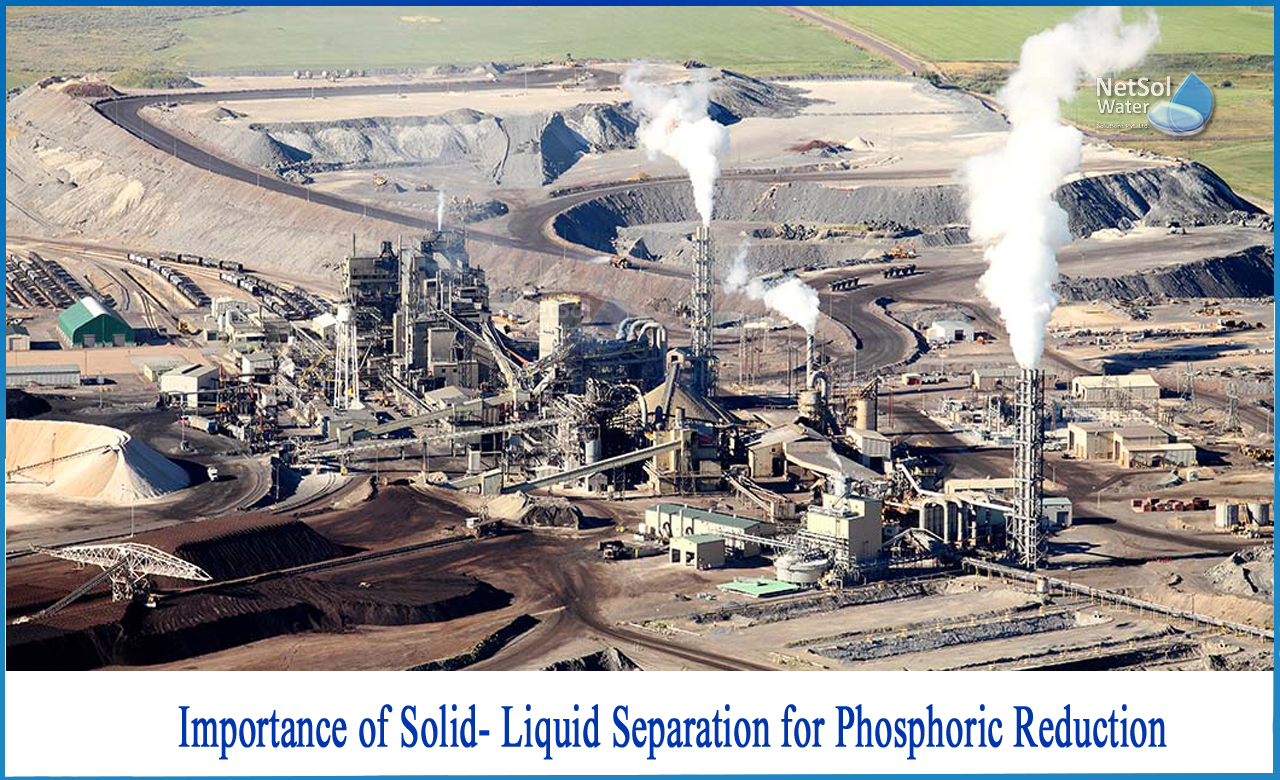Overview
Most commercial phosphate fertilisers are made from rock phosphate as the raw ingredient. Acid soils were once treated with ground rock phosphate. However, very little rock phosphate is now employed in agriculture because to poor phosphorous availability, high delivery costs, and minimal crop responses.
Phosphate rock processing entails separating phosphate from the matrix layer, which is made up of a mixture of sand, clay, and phosphate. Beneficiation improves the phosphate grade. The beneficiated rocks can be used as a “P” source, however the majority of it is sent to phosphoric acid plants. Phosphoric acid is used in the manufacturing of mixed fertilisers as a raw material. The acid can potentially be refined further and used as an acidulant in food.
How to Solid liquid separation for producing phosphoric acid?
Separating the valuable liquid from the waste particulates is a vital operation in the manufacturing of phosphoric acid. The effort to improve efficiency and cut expenses in this portion of the process adds a lot of value to the acid in the end.
The manufacturing of phosphoric acid requires thickening, clarifying, and filtration. The equipment used and its size are determined by the customer's process goals, feed slurry composition (e.g., particle size distribution, slurry density, and so on), and total cost of ownership over the equipment's life cycle.
Thickening: Thickeners are used in the manufacturing of phosphoric acid to concentrate the phosphate rock slurry before reacting it with acid. Phosphate can be thickened to paste consistency because to the nature and qualities of their mineralogical characteristics, which minimises water content and saves on acid costs. A denser underflow decreases water loss, offers more useful liquid off the thickener's top, and lowers the amount of sulphuric acid required.
Clarifying: To provide a pure liquid for further production steps, clarifiers remove fine gypsum from the phosphoric acid output. The clarifier's primary purpose is to equally distribute the feed in the tank such that the liquid-solids separation occurs throughout the tank.
In phosphoric acid plants, there are numerous significant considerations to consider while selecting the correct clarification:
· The perfect settling rate of solid particles aid in determining the best acid generation rates. It's possible that a flocculant will be needed to speed up the removal of phosphoric acid contaminants.
· The structure of the clarifier will be determined by the slurry characteristics and plant preferences, ranging from rubber walled tanks with abrasion resistant carbon bricks to exotic stainless-steel compounds.
· Impurities are eliminated faster with more effective clarity, resulting in higher-quality phosphoric acid and a superior downstream fertiliser product.
Filtration: In phosphoric acid plants, there is a trend towards more and larger belt filters taking on more filtration responsibilities. Belt filters separate particles from liquids and are commonly used in the chemical industry, mining, and water treatment to dewater sludge.
Horizontal belt filters offer the best filter performance for the least money when compared to tilting pan or table filters.
Reducing of phosphate
The gypsum stack wastewater contains chemicals that are harmful to the environment, such as residual phosphoric acid, hydrofluoric acid, flu silicic acid, and heavy metals. Prior to release, any wastewater discharge must be treated with fluoride removal and acid neutralisation, which may include procedures for gypsum stack closure.
The high-density sludge (HDS) method is a tried-and-true technology for neutralising acidic wastes and removing metals from industrial waste.
Netsol engineers are successful in targeting acids by using techniques to the treatment of gypsum stack wastewater using both laboratory bench scale tests and the expertise of a full-scale installation.
Netsol Water is Greater Noida-based leading water & wastewater treatment plant manufacturer. We are industry's most demanding company based on client review and work quality. We are known as best commercial RO plant manufacturers, industrial RO plant manufacturer, sewage treatment plant manufacturer, Water Softener Plant Manufacturers and effluent treatment plant manufacturers. Apart from this 24x7 customer support is our USP. Call on +91-9650608473, or write us at enquiry@netsolwater.com for any support, inquiry or product-purchase related query.
Conclusion
One of the most serious issues in the phosphate business is phosphoric acid sludge. Its manufacture is accompanied by significant P2O5 losses, which have an impact on the process's performance. The management and valuation of this trash is a major concern. Selecting the appropriate approach for an efficient separation in an industrial application of solid-liquid separation is a critical element.



